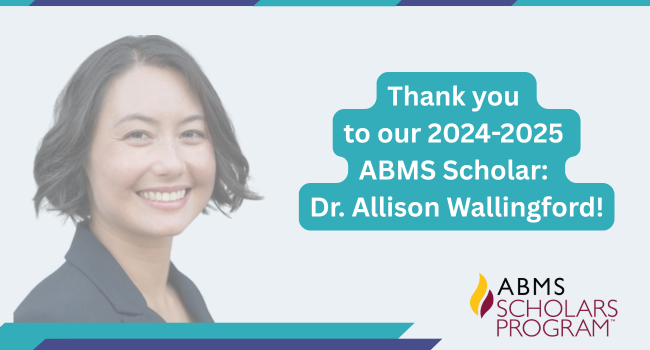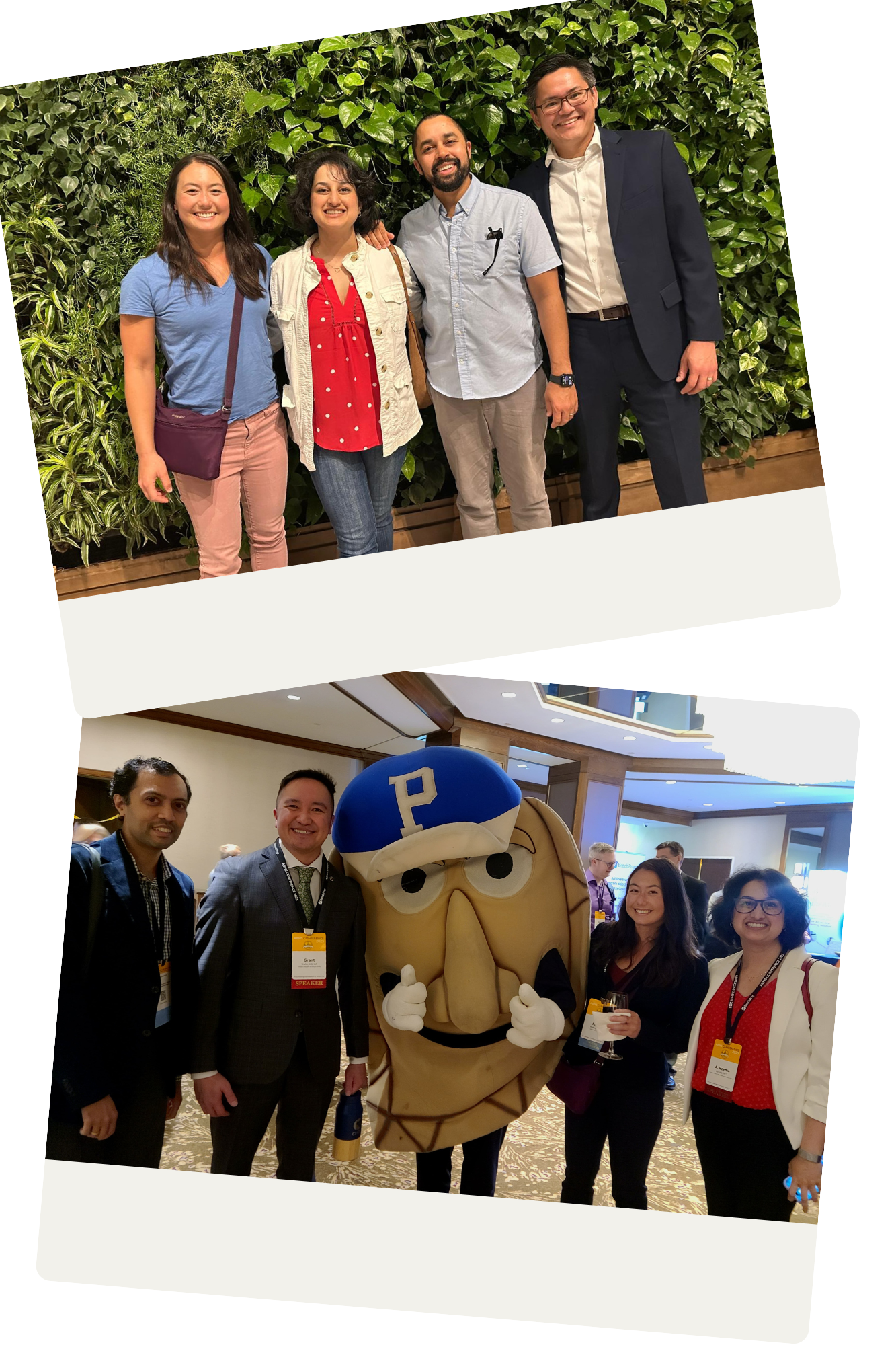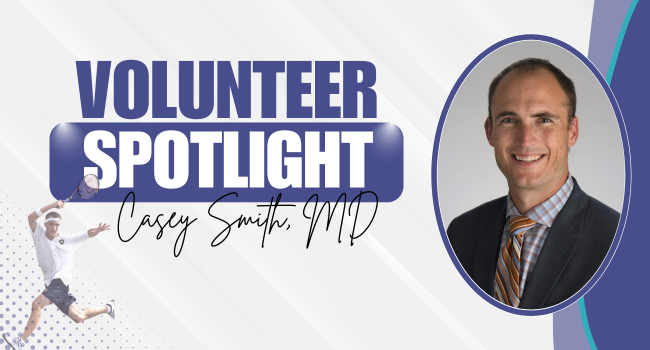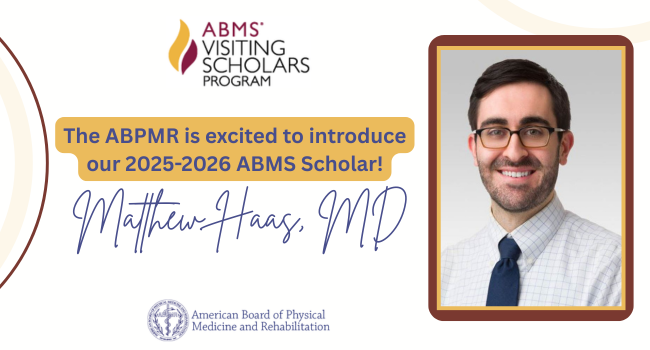Physician Features
Thank you to our 2024-2025 ABMS Scholar: Dr. Allison Wallingford

Thank you to Dr. Wallingford for being ABPMR’s first ever ABMS Scholar!
Over the past year, Dr. Wallingford has been dedicated to her ABMS Scholar research titled “Use of Biased Language in the Medical Record to Describe Patients with Traumatic Brain Injury.” Recently, she attended the ABMS conference in Pittsburgh, where she engaged with fellow Scholars, listened to their research presentations, and showcased her findings on a research poster.
What were the conclusions of your research?
My research really ended up evolving throughout this process. I started out with one way to analyze biased language and after talking with more collaborators we decided on three different ways to analyze. Although it moved slower than expected it was good in a sense that it was very important to find what is biased language and how do we tell people they are using it or how do we find it in medical records?
We were able to get some results that I included on my poster such as the number of biased words in the patient chart. We found there was no overall difference for patients with Traumatic Brain Injury (TBI) versus without. We are at the beginning of looking at more specific data in a logistic regression of is TBI a factor in having more biased language or not? Although the scholarship funds through the end of the year this project will go on for much longer.
How did the ABMS Scholarship help with your research?
Having those funds to help with collaborators and having consultations really gave me a jumpstart to get this research started. I am very happy with the progress we have made over the course of the year. I was able to connect with a statistician and work with the University of Washington IT Health Sciences Department. There was someone who was an expert in natural language processing and introduced these ideas of AI tools for sentiment analysis.
What was your experience working with AI on this project?
Our preliminary findings revealed a significant issue: existing AI tools designed for analyzing various text types were not effective in detecting biased language within medical notes. We aimed to utilize a tool that evaluates social media posts and assesses whether the language is biased, negative, or positive, including customer reviews and social media criticism. However, after processing numerous medical notes, we found that the scores generated by the tool did not align with human interpretations of the text.
What is next for your research?
The next phase of the project involves a manual review of a sample of notes by two residents we recruited. They will examine a smaller sample, while the algorithm and AI tool can analyze tens of thousands of notes. The residents will review a few hundred notes to determine if they perceive biased language, especially in notes about TBI patients. Additionally, we aim to see if the presence of these biased words influences trainees' perceptions and whether there is a correlation between these methods of analysis.
Do you have any advice for someone thinking about applying to ABMS Scholars?
I highly recommend participating in it. The Zoom meetings with fellow scholars are incredibly fruitful and provide a great sounding board for receiving project feedback and brainstorming new ideas. Also, getting feedback from physicians in different specialties and institutions was extremely valuable.
To see Dr. Wallingfords research poster she presented at the 2025 ABMS Conference click here.


